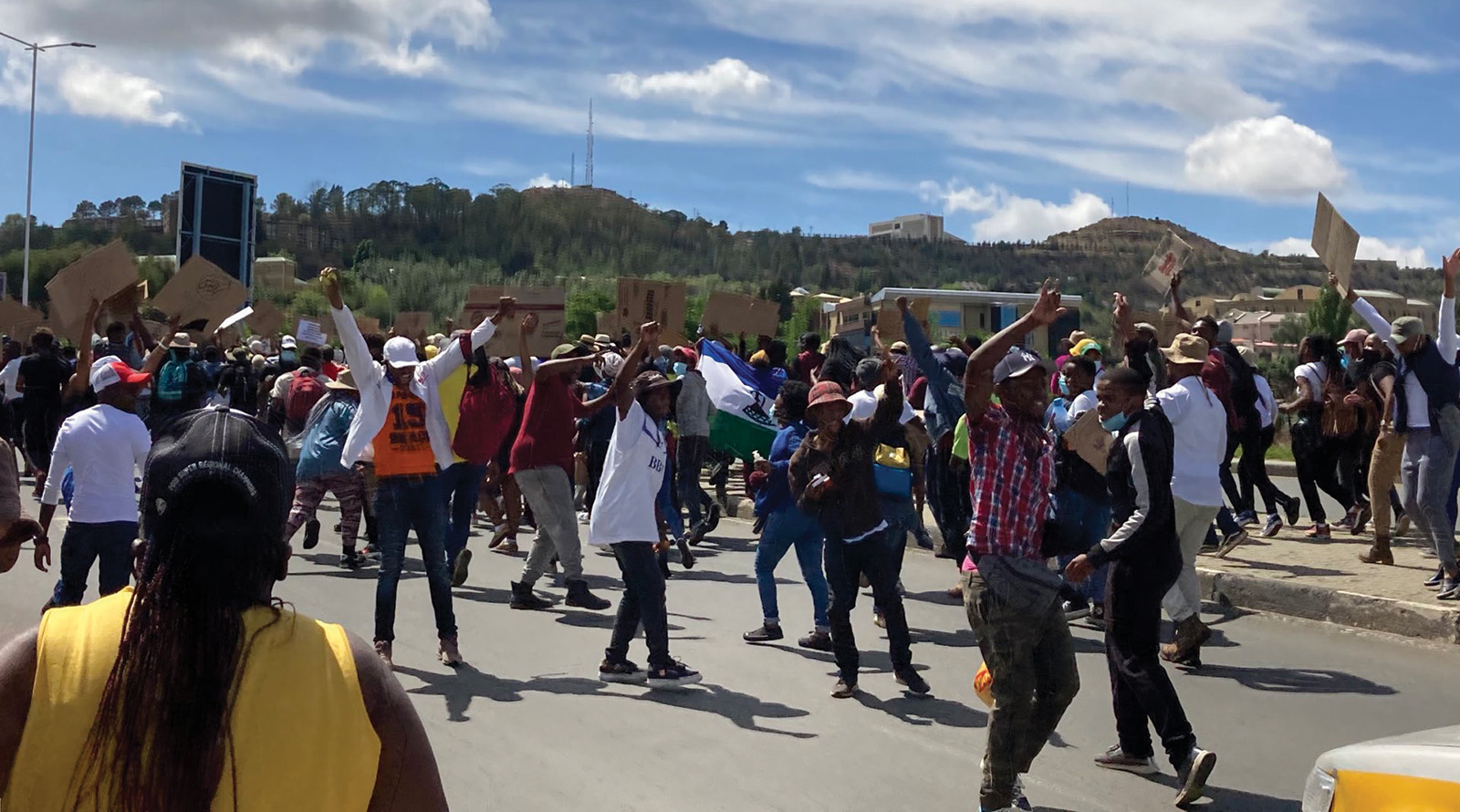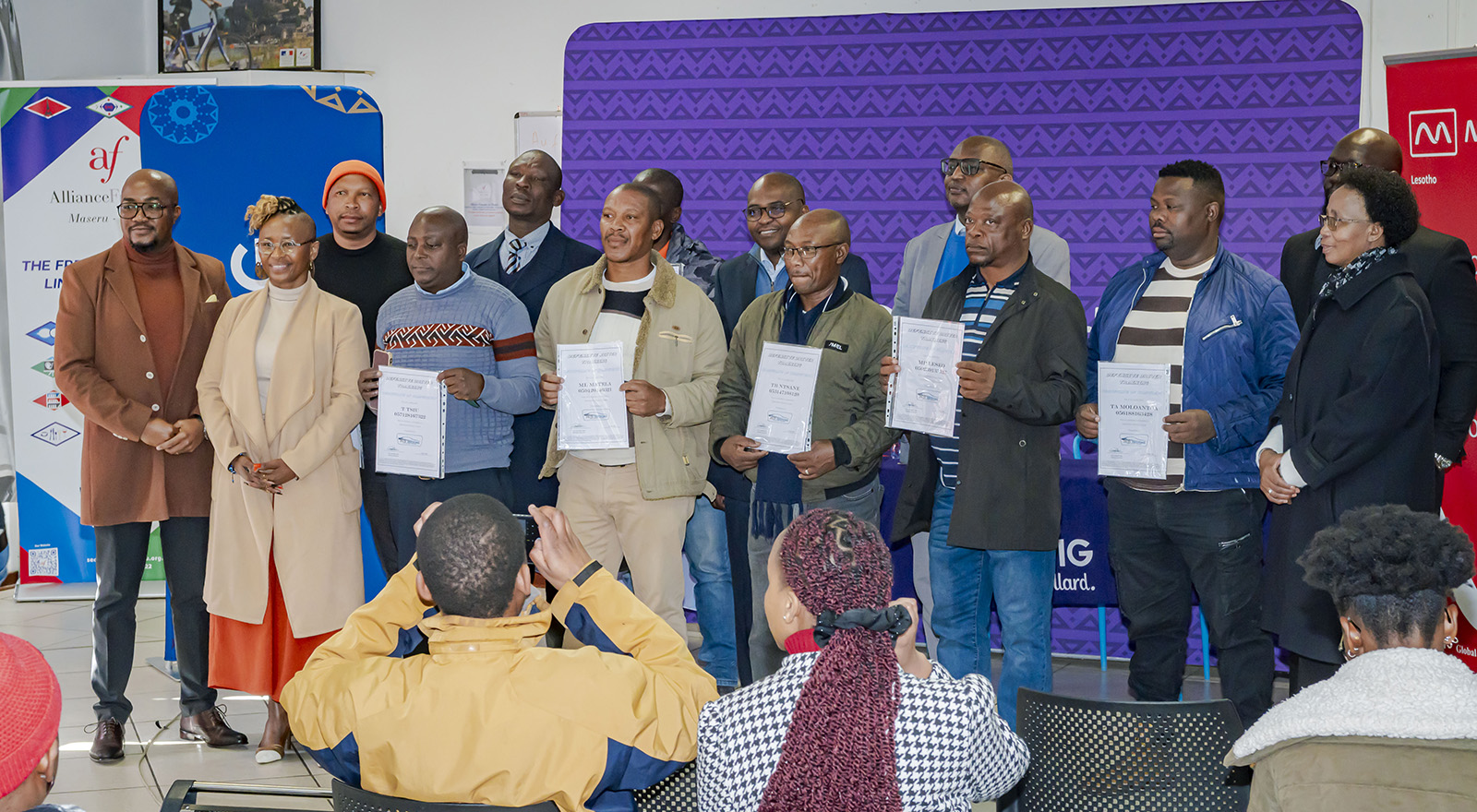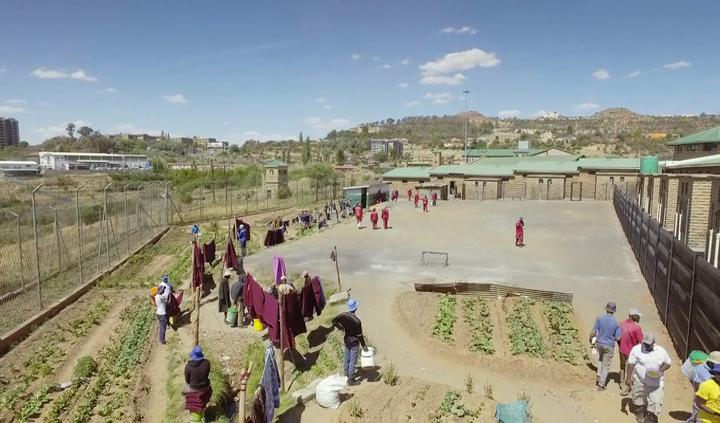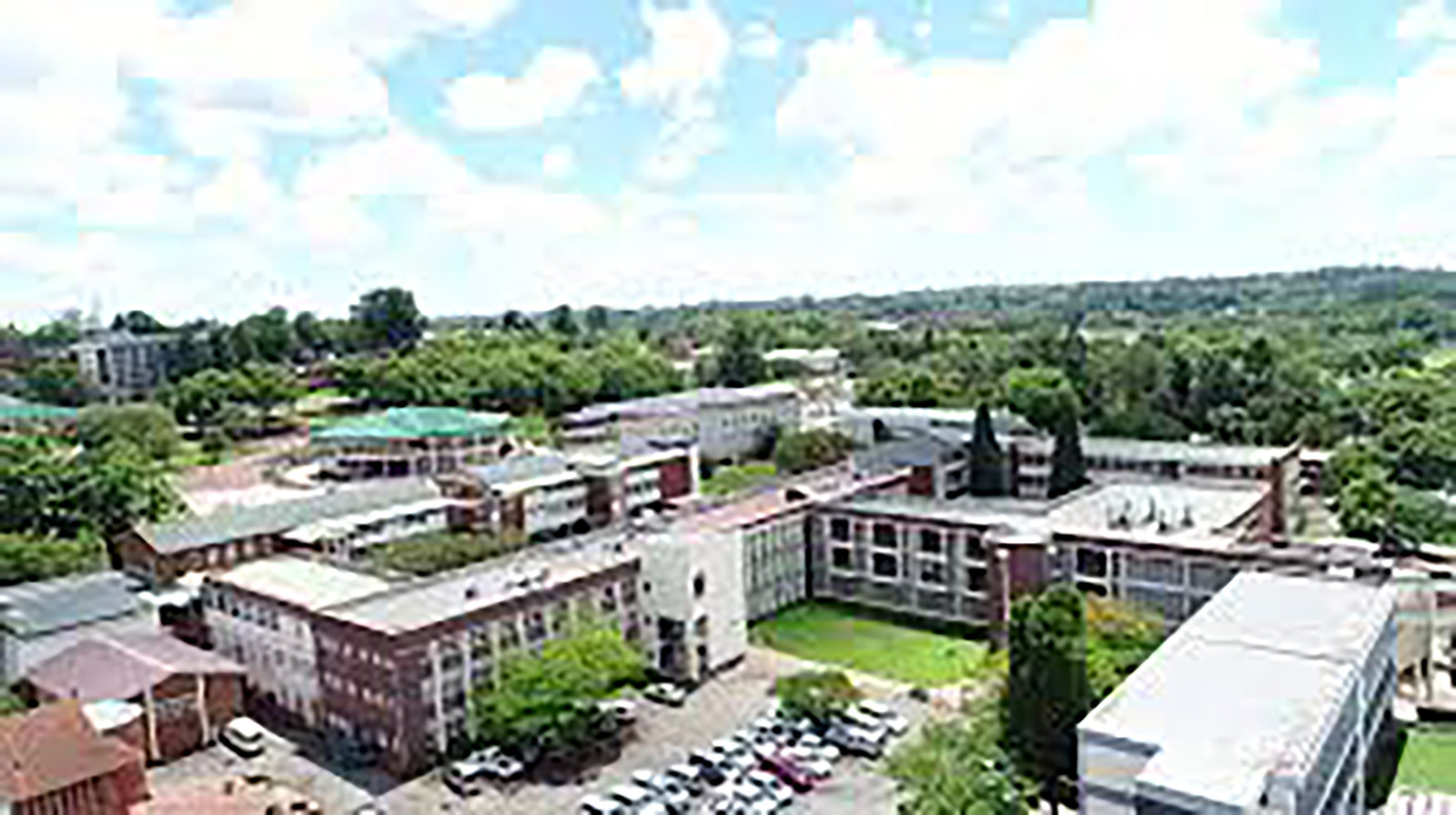Flailing agriculture threatens food security

SHARE THIS PAGE!
By Seleoe Nonyane and Staff Reporter
According to the International Fund for Agricultural Development, Lesotho cannot produce enough food to feed its growing population. The agriculture sector accounts for about 17 percent of GDP. It is the primary source of income, or an important supplementary source, for more than half the population in rural areas. Only about 10 per cent of the country’s total land area is classified as arable.
About 70 to 80 per cent of the country’s population lives in rural areas, and more than three quarters of these people are engaged in agriculture – mostly traditional low-input, low-output rain-fed cereal production and extensive animal grazing. An estimated 57 percent of the population lives below the poverty line, according to a 2010/2011 household budget survey.
“Despite the overall economic growth, opportunities to earn income remain limited. They are generally confined to urban areas and wage employment in the industrial sector. The rural economy and agricultural development will therefore continue to play a major role in Lesotho’s development strategy for the foreseeable future.”
The ministry of agriculture and food security is responsible for formulating and implementing policies aimed at strengthening the sector in Lesotho.
It says its mission is to provide dynamic and pro-active leadership in participatory development and implementation of policies and programmes with farmers, and providing expert advisory agricultural services to the farming community and agro-businesses, leading to sustainable agriculture for the achievement of food security.
Yet the situation on the ground tells a different story. For example, in the southern district of Mohale’s Hoek just over 120km from the capital Maseru, a visit to one of the ministry’s sites near St Stephen’s Diocesan High School revealed glaring negligence and ineptitude; infrastructure in shambles and farming machinery that looked like it has not been used in ages.
Officials there admitted the equipment lying in a state of disrepair at the resource centre, that includes a dilapidated storage house, ploughs, disc harrows, a cultivator, irrigation pipes, a diesel tank and a combine harvest, were last used in the block farming scheme, and they could not recall when that was.
All this raises concerns about the government’s commitment to propping up farming and attaining food security.
“The machinery is not deployed to assist individual farmers. Only those involved in block farming have access to them. Some of it is still in working condition and needs minor repairs and servicing.
“The ministry has extension officers stationed in every constituency to provide technical support to farmers. These experts are at the disposal of the farmers at all times. But the equipment is only available to farmers involved in block farming,” Mohale’s Hoek irrigation officer Molefi Ramontsoe told this publication.
This poor management of agricultural facilities and resources, in microcosm, is a challenge facing the sector in Lesotho. The scenario in Mohale’s Hoek is a common sight in practically all 10 districts.
As Lesotho heads to the general elections in October this year, food production is one of the issues that deserve to be at the top of political parties’ manifestos. So what do they say?
What the parties say
The leader of the All Basotho Convention (ABC) Nkaku Kabi is bold enough to acknowledge that something did go wrong midstream, and revealed that his party is already working on a strategy to revive agriculture in the country.
Not a man of many words, Kabi is very clear about what needs to be done, and he goes straight to the point to provide realistic solutions:
“The issue of such resources that go to waste is an unacceptable one, and with the experience we have and having observed the matter first-hand, we know just we need to do to remedy it and how to remedy it, such that all resources are utilized in a manner that changes the lives of the poorest of the poor.
“We have worked on the proper structure to get the government back into the villages. As a matter of fact, block farming is at the top of our strategy. Our party used to make sure that block farming is implemented across the country. But somewhere down the line, this kind of farming came to a halt.
“We have plans to revive blocks, go back to block farming, where the government assists and makes life easy for the farmers, and see that as they produce they have stake in order to curb hunger,” Kabi indicated.
The leader for MEC Selibe Mochoboroane, told theReporter that the party’s vision is to see a Lesotho that is able to produce enough food and feed its people.
“We have several interventions in mind, and one of them is to go the commercial farming route instead of the subsistence farming.
“The first thing we have to work on is the documentation of our land. As we speak now the people who have money to invest in agriculture do not have access to land. However, people who own land do not have the resources to use the land.
“As MEC, we say agricultural sites should also be documented just like housing land and commercial sites. Those who acquire the land must have a lease to the land and those who want to invest in that land must have a sub-lease, so that when commercial farmers or business people who want to invest in agriculture want to use the land, at least they will have a document to rely on.
“The document will go hand in hand with a contract that clearly indicates that the land owner will get 30 percent and the business person or the commercial farmer will get the 70 percent of the harvest,” Mochoboroane explained.
He also touched on the import rate in the country, stating that for three consecutive years Lesotho has spent M300-million to M600-million just on cereal imports while importation of meat into the country ranges between M400-million and M600-million.
“Research also shows that most employees from these businesses exporting to the country are Basotho nationals who went to South Africa seeking for jobs. Therefore, as a country, something needs to be done in order to address the matter. Our party’s vision is for a Lesotho that is able to produce enough food to feed its people and to sell.”
For his part, Basotho Action Party spokesperson Lepolesa Makutoane, says the party primarily espouses an inclusive economy, among others, and has a workable policy programme towards agriculture.
“Ideologically, the BAP envisages Lesotho as socialist developmental state. What this practically means is that we aspire to improve the livelihoods of majority citizens. Unlike other capitalistic parties in the country which knowingly or unknowingly have helped poverty and inequality by policies which have resulted in the general economic decline since they have relegated as unimportant the agricultural sector and have let to accumulation of wealth in the hands of a select class of elites, BAP consciously streamlines its endeavours towards improving the lot of have-nots and creating an egalitarian society whereby all social classes shall benefit from dividends of a sustainable democratic development program.
“The agricultural sector is integral and indispensable in this effort, for several reasons. First, the political survival of the state itself leans on national security and national prosperity. This should be construed to mean food security and health. Secondly, because of food insecurity and heart-wrenching poverty in our country, the rate of homicides in our country is record high and we range number six globally – per 100 000 Basotho, 46 are murdered; far above the global average of seven. Undoubtedly, it is thanks to joblessness, hunger and anger that the nation bears this brunt of death. Thirdly, it is worrisome that M53-million is due as salaries payable to the civil servants in the agricultural departments of our government when there is barely and considerable food production the country.
“This means we do not exploit to the optimum level our arable soil, meagre as it may have been declining from 25% of arable soil used for residence and much of land reclamation has not been seen in our country. This is a clear indication that alternating regimes fail to see agriculture as an industrial opportunity, we have failed to take economic advantage of abundance of water, soil fertility and high altitude to reduce poverty and unemployment. Fourthly, just look at the current budget vis-a-vis the capital budget for the past two decades: from a proportion of 49% to 51%, the recurrent budget has by far surpassed the capital budget whereby now almost 70% is recurrent budget. These developments, when the national debt has increased by 20% in just four years and food chain of supply globally is unsustainable under disruption of pandemics and wars, it is a worrisome state of affairs. Agricultural industry would relieve Lesotho of unemployment, and 57% of abject poverty in our country would be mitigated significantly. Lastly, let us all remember that Lesotho was once a granary for south Africa. We can still reemerge as an agrarian pillar to support the region with food.”
Makutoane argued that all the money that goes on waste must be accounted for and the same be rigorously invest in agriculture – for instance the auditor general’s report indicated that M3.6-billion is unaccounted for, and recently it was bruited abroad that M50-million was fraudulently taken via Central Bank of Lesotho.
“The agricultural resources that lay to waste in many sites across the country need to be repaired if possible. Agriculture remains the primary priority to restore economic productivity in this country. BAP cannot achieve its mandate without a bold step towards resorting to agriculture as the avenue leading to industrialisation of Lesotho; agro-economy is our forte as a country.”


Youth accuse police of sabotaging protest
5 days ago
LCS officers demand standard salaries
5 days ago
Govt ordered to suspend vendors’ eviction
8 days ago

240 inmates released on parole
9 days ago
Matekane calls for stronger trade cooperation
11 days ago


Cash-strapped LEC hikes staff salaries
15 days ago